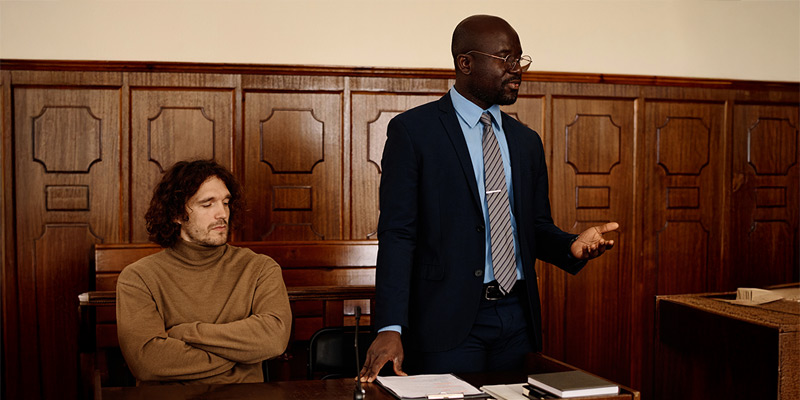Contents
Object to Form Deposition Guide: 5 Objections That Can Make or Break Your Case
In litigation, depositions play a critical role in shaping testimony, preserving legal arguments, and influencing case outcomes. They offer attorneys the chance to control the flow of information, maintain the integrity of the record, and prepare strategically for trial. Whether you’re working as part of a litigation team or managing the case independently, you must know how and when to object.
One of the most important skills in this process is the ability to object to form deposition questions. When you combine this with a strong understanding of the common deposition objections, you can prevent procedural missteps and safeguard your client’s legal standing. A well-placed objection reduces confusion, stops improper questioning, and preserves vital issues for trial.
Attorneys must raise some objections immediately during the deposition or lose the opportunity to challenge them later. Others remain preserved for future proceedings even if no one states them on the record. This distinction between waivable and non-waivable objections requires attorneys to think quickly, assess strategically, and act decisively in real-time.
Jurisdiction also plays a key role. Some courts accept a general “Objection form.” Others require attorneys to specify the exact basis, such as “leading” or “vague.” When attorneys understand both federal and local rules, they make more effective objections and better protect their cases.
Why deposition objections matter:
- Protect the witness from confusing, misleading, or prejudicial questions
- Preserve the record for future motions, impeachment, or trial arguments
- Prevent waiver of issues that must be raised during the deposition
- Maintain control over the direction and tone of the questioning
- Signal misconduct or procedural issues for later court review
In the following sections, we’ll explore five powerful objections that every litigator should know and apply with confidence—from how to object to form deposition questions to properly handling privilege, relevance, hearsay, and foundation concerns.
The Five Pillars of Deposition Objections
Depositions influence the course of litigation by doing more than collecting facts. They enable attorneys to cross-examine opposing witnesses, control the flow of information, and establish a strong foundation for trial. Knowing how to object properly during a deposition allows attorneys to protect their clients, limit problematic questions, and preserve the integrity of the record.
Although rules differ by jurisdiction, five objections stand out as essential. Every litigation attorney, whether working solo or as part of a team, should understand how and when to apply these principles. Among them, the objection to form carries particular weight because it addresses the structure of a question, not its substance.

1. Objection to Form
Objections to form target how a question is phrased, not what it asks. This objection finds support in the Federal Rules of Civil Procedure, specifically Rules 30(c)(2) and 32(d)(3)(B). These rules require timely and transparent objections, warning that failing to object during the deposition results in a waiver.
Using form objections allows attorneys to:
- Protect the witness from confusing or misleading questions
- Preserve a clear transcript for motions or trial
- Prompt opposing counsel to rephrase flawed or ambiguous questions
Unlike other objections, form objections do not block the witness from answering. They serve as markers that the structure of the question needs correction.
Common grounds for form objections include:
- Leading: The question suggests its answer
- Compound: The question contains multiple parts that confuse the response
- Vague or ambiguous: The question lacks precision or clarity
- Argumentative: The question challenges or badgers rather than seeks facts
- Calls for narrative: The question prompts an open-ended or disorganized answer
- Assumes facts not in evidence: The question includes unproven assertions
- Calls for legal conclusion: The question asks for a legal judgment, not factual input
Jurisdictions handle these objections differently. Some accept a simple “Objection, form.” Others require specificity, such as “Objection, compound.” Attorneys who fail to follow local rules risk losing the objection or appearing to coach the witness.
To stay compliant, attorneys must avoid “speaking objections.” For instance, saying, “Objection, vague, but if you know what she means, go ahead,” improperly guides the witness. Proper objections should remain short, neutral, and grounded in procedure.
2. Privilege Objection
When attorneys assert privilege, they invoke one of the few objections that allows them to instruct a witness not to answer. This objection protects confidential communication and helps maintain ethical boundaries during the discovery process.
Federal Rule of Evidence 501 provides the authority for this objection, allowing attorneys to apply common law or state-defined privileges in federal court.
Recognized privileges include:
- Attorney-client privilege: Covers communication and legal advice
- Work product doctrine: Shields documents prepared for litigation
- Doctor-patient confidentiality: Preserves privacy in medical matters
- Spousal privilege: Protects private marital communication
- Fifth Amendment: Prevents compelled self-incrimination
To assert privilege properly, the attorney must speak clearly and concisely. For example:
- “Objection. The witness asserts attorney-client privilege.”
- “Objection. Fifth Amendment.”
If the opposing attorney continues, the defending attorney can instruct the witness not to answer and may suspend the deposition to seek a court order. Failing to object at the right time can waive the privilege, opening the door for sensitive testimony to be used later.
Attorneys should apply privilege objections with precision. Courts scrutinize vague or excessive claims. Narrow, well-supported objections protect the record without derailing the deposition.
3. Relevance Objection
Relevance in a deposition differs from relevance at trial. Although trials admit only evidence that meets strict relevance rules under FRE 401 and 402, depositions allow broader questioning. Rule 26(b)(1) permits attorneys to ask about topics that could lead to admissible evidence, even if the information itself is not admissible.
Despite the wider scope, relevance objections remain valuable. They help attorneys:
- Preserve the right to exclude irrelevant content later
- Control the tone and direction of questioning
- Discourage harassment or off-topic inquiries
Consider this example:
- Question: “Do you believe in astrology?”
- Objection: “Relevance.”
Unless the question relates directly to the claims or defenses, it lacks merit and could distract or embarrass the witness.
Although relevance objections do not prevent the witness from answering, placing the objection on record sets boundaries and prepares the ground for a future motion to strike the testimony.
4. Lack of Foundation
A foundation objection challenges whether the question has established the necessary groundwork. Attorneys rely on FRE 602 and 701, which require personal knowledge and limit lay opinions to observations based on firsthand experience.
This objection often applies when:
- The witness did not directly observe the event in question
- A layperson offers a professional or expert opinion
- A document lacks authentication or identifiable origin
For example, if a witness did not see a car crash but is asked how fast the car was going, the defending attorney should object and request that the examining attorney lay the foundation first.
This objection requires the questioning attorney to:
- Show the witness had relevant knowledge or involvement
- Confirm their qualifications or experience
- Authenticate documents by source, date, or authorship
Even though the questioning might continue, a properly raised foundation objection preserves the attorney’s ability to challenge the admissibility of the response later.
5. Hearsay
Hearsay objections address out-of-court statements offered to prove the truth of the matter at issue. FRE 801 defines hearsay, and FRE 802 excludes it unless an explicit exception under FRE 803 or 804 applies.
Depositions allow for broader leeway regarding hearsay because discovery rules do not adhere to trial standards. Still, attorneys should object when hearsay appears, especially if they plan to challenge it later.
Common hearsay examples include:
- “My coworker said the manager admitted fault.”
- “The customer told me the product malfunctioned.”
Unless the statement falls under a recognized exception, such as a present-sense impression or party admission, it will likely face exclusion at trial.
Attorneys who raise hearsay objections during depositions:
- Signal their intent to challenge the statement
- Protect the record from unreliable or secondhand information
- Reinforce the value of firsthand, credible testimony
Even though the witness might still need to answer, the objection preserves the right to contest the evidence later.
Strategic Practice Tips and Pitfalls
Practical deposition objections require more than just knowing when and what to object to. Attorneys must approach each deposition with a strategy rooted in thorough preparation, clear communication, and strict adherence to the rules. Mistakes, especially those involving the timing or form of objections, can weaken the record, harm credibility, or even lead courts to impose sanctions. The following best practices and pitfalls help attorneys make deposition objections with precision.
A. Preparing the Deponent
Attorneys lay the foundation for a defensible deposition by thoroughly preparing their client. They should explain the deposition process, outline case-specific risks, and clarify the purpose and limits of objections.Effective deposition practice requires strong preparation and strategic thinking habits for lawyers can help with that. When deponents understand what to expect, they are less likely to panic or over-disclose under pressure.
Key instructions for preparing a deponent include:
- Pause before answering: This gives the defending attorney time to object and the deponent time to think carefully before responding.
- Listen and ask for clarification: Depositions should never be based on guesswork. If a question is confusing, they should ask for clarification.
- Answer only the question asked: Deponents should avoid offering extra information. Short, direct answers help preserve the record.
- Use “I don’t know” appropriately: When unsure, the deponent should say “I don’t know” or “I don’t recall” instead of guessing.
- Manage body language and emotions: Calm, neutral behavior helps prevent the other side from misinterpreting or exploiting their demeanor.
- Know the break protocol: Deponents may request a break at any time, except when a question is pending unless a privileged discussion is required.
If attorneys fail to prepare clients on these points, they risk allowing unguarded or problematic testimony that could later undermine their case in trial or mediation.
B. Delivering Clear, Non-Argumentative Objections
Federal Rule of Civil Procedure 30(c)(2) requires attorneys to state objections concisely, without argument or coaching. Speaking objections, those that include commentary or direction, can improperly influence the witness and slow down the deposition.
For example:
“Objection, vague.”
Not: “Objection, vague. If you understand, go ahead.”
The first response crosses into coaching and risks drawing a judicial reprimand. Attorneys should stick to stating the legal basis, such as “Objection, relevance” or “Objection, compound.” Adding commentary risks sanctions and damages professional credibility.
By clearly stating objections and avoiding unnecessary commentary, attorneys ensure depositions are efficient and ethically sound.
C. Knowing When Not to Object
Strategic silence can often be more potent than constant objections. Not every objection strengthens the record. Frivolous or repeated objections can irritate the court and suggest the attorney is obstructing the process or lacks confidence in the witness.
Attorneys should avoid objecting when:
- The testimony, although technically objectionable, may support the client’s case.
- The objection would draw unnecessary attention to harmless testimony.
- The question, though awkwardly worded, poses no real legal threat.
Making selective objections helps attorneys appear confident and credible while maintaining a clear and concise transcript.
D. Instructing the Witness Not to Answer
Attorneys must act with caution when instructing a witness not to answer. Federal and state rules allow this only in limited scenarios, such as:
- To assert a valid privilege (e.g., attorney-client, spousal, Fifth Amendment)
- To enforce a court order that limits the deposition’s scope
Attorneys who give this instruction without proper grounds risk sanctions. When invoking privilege, they must state the legal basis on the record and consider requesting a protective order if opposing counsel continues to question them.
Suppose opposing counsel improperly instructs a witness not to answer. In that case, the examining attorney should note the refusal on the record and, if needed, request court intervention or file a motion to compel.
E. Addressing Misconduct During Depositions
Depositions can sometimes turn hostile. Bullying, harassment, or repeated improper objections can threaten the fairness of the process. Attorneys must step in to protect their clients while preserving professionalism.
To address misconduct, attorneys should:
- Object to the inappropriate behavior on the record
- Ask opposing counsel to change their conduct
- Pause the deposition to defuse tension or confer privately
- Terminate the session and request court intervention if needed
Recording depositions on video can deter misconduct and provide robust evidence if the court later considers sanctions.
F. Jurisdiction-Specific Objection Rules
Deposition objection standards vary by jurisdiction. While federal courts require concise and non-suggestive objections, the level of specificity varies:
- In some federal courts, “Objection form” is sufficient.
- Others require specific grounds such as “Objection, compound” or “Objection, vague.”
- States like Missouri require attorneys to use precise language or risk waiving the objection.
- California courts apply distinct waiver rules for both form and privilege objections, demanding careful compliance.
Before conducting any deposition, attorneys should review local court rules, standing orders, and recent case law to ensure their objections meet jurisdictional standards.
Final Thoughts
Mastering deposition objections is a strategic imperative that significantly influences the course and resolution of litigation. A comprehensive grasp of the distinctions between waivable and non-waivable objections, supported by a precise understanding of their legal foundations and strategic applications, is essential. Attorneys must balance the immediate requirement to protect the client and the deposition record with the long-term objective of preserving issues for trial.
The five principal categories of deposition objections are Form of the Question, Privilege, Relevance, Lack of Foundation, and Hearsay. Each category serves a distinct yet interconnected purpose. Objections to form provide a subtle means of control, guiding the questioner toward clarity and preventing witness coaching while preserving the integrity of the record. Privilege objections serve as a critical safeguard, allowing counsel to halt questioning to protect confidential information, a non-waivable imperative. Relevance objections establish the boundaries of discovery, ensuring the examination remains focused and preventing undue harassment. Objections for lack of foundation ensure the reliability of testimony by requiring that it be grounded in personal knowledge and verifiable facts. Finally, a nuanced understanding of hearsay, which is generally discoverable in a deposition but often inadmissible at trial, allows counsel to navigate the broad scope of discovery while preparing for subsequent evidentiary challenges.
Effective deposition practice requires meticulous client preparation, adherence to concise and non-argumentative objections, and the tactical judgment to discern when an objection is warranted. It also necessitates vigilance in addressing attorney misconduct and a thorough awareness of jurisdictional variations. Ultimately, success in depositions is contingent upon a comprehensive application of these principles, enabling legal counsel to navigate the complexities of discovery with precision and build a more robust case for their client.
RunSensible offers an intuitive legal case management platform that helps you manage client records, track deadlines, and preserve your deposition objections with ease. Start Your Free Trial today, or Book a Free Demo
FAQs
-
Why do attorneys make objections during a deposition?
Attorneys make objections during a deposition for several strategic reasons. They protect the witness from misleading, confusing, or prejudicial questions and ensure the accuracy of the official record for any future motions or trial arguments. They can also prevent the waiver of legal issues that must be raised at that moment, maintain control over the deposition’s direction, and signal any attorney misconduct for later review by the court.
-
What are the main categories of deposition objections?
Although rules can vary depending on the jurisdiction, attorneys commonly use five principal categories of objections:
- Objection to Form: Attorneys raise this objection when they believe the phrasing and structure of a question are flawed, not its subject matter.
- Privilege: Attorneys use this objection to protect confidential communications, such as those between an attorney and client or a doctor and patient.
- Relevance: Attorneys raise this objection when a question isn’t pertinent to the case, although the scope for relevance is generally broader in depositions than in trials.
- Lack of Foundation: Attorneys use this objection when a question doesn’t establish that the witness has the necessary personal knowledge to answer.
- Hearsay: Attorneys raise this objection when an out-of-court statement is used to prove the truth of the matter being discussed.
-
What should a witness do if they find a question confusing during a deposition?
If a witness finds a question unclear or confusing, they should not guess its meaning. Instead, they should ask for clarification. Experts also recommend that the witness pauses before answering any question, which gives their attorney time to object and allows the witness a moment to consider their response carefully.
-
What is the difference between an “objection to form” and a “privilege” objection in terms of the witness’s response?
An “objection to form” signals that the structure of the question is flawed. After an attorney raises this objection, the witness generally still needs to answer the question. In contrast, a “privilege” objection allows the defending attorney to instruct the witness not to answer the question to protect confidential information. If the questioning attorney persists after a privilege objection, the defending attorney may suspend the deposition to seek a court order.
-
In what specific situations can an attorney instruct a witness not to answer a question?
Attorneys can instruct a witness not to answer only under minimal circumstances. They reserve this action for situations such as asserting a valid privilege (e.g., attorney-client, spousal, or the Fifth Amendment right against self-incrimination) or enforcing a court order that limits the scope of the deposition. Attorneys who instruct a witness not to answer without proper legal grounds may face sanctions from the court.
-
Do the rules for making deposition objections vary by location?
Yes, the standards and rules for making deposition objections vary significantly from one jurisdiction to another. For example, some federal courts accept a general “Objection, form,” while others require a more specific reason, such as “Objection, compound” or “Objection, vague.” State courts also have their own distinct rules. For instance, Missouri requires precise language to avoid waiving the objection, and California has specific waiver rules for both form and privilege objections. Therefore, attorneys must review local court rules to ensure their objections comply with the regulations.
References
- The Ultimate Deposition Objections Cheat Sheet for Lawyers – Rocket Matter https://www.rocketmatter.com/blog/deposition-objections-cheat-sheet/
- Rule 402 – General Admissibility of Relevant Evidence – Federal Rules of Evidence https://www.rulesofevidence.org/fre/article-iv/rule-402/
- Litigation Section Blog: Objections to Form, Foundation, and Instructions Not to Answer: Do You Know the Deposition Rules? – State Bar of Wisconsin https://www.wisbar.org/NewsPublications/InsideTrack/pages/Article.aspx?Volume=9&Issue=11&ArticleID=25618
- Rule 32. Using Depositions in Court Proceedings | Federal Rules of Civil Procedure – Law.Cornell.Edu https://www.law.cornell.edu/rules/frcp/rule_32
- All About Objecting To The Form Of A Question At A Deposition | Litigation & Trial https://www.litigationandtrial.com/2015/11/articles/attorney/objecting-to-the-form/
Disclaimer: The content provided on this blog is for informational purposes only and does not constitute legal, financial, or professional advice.







